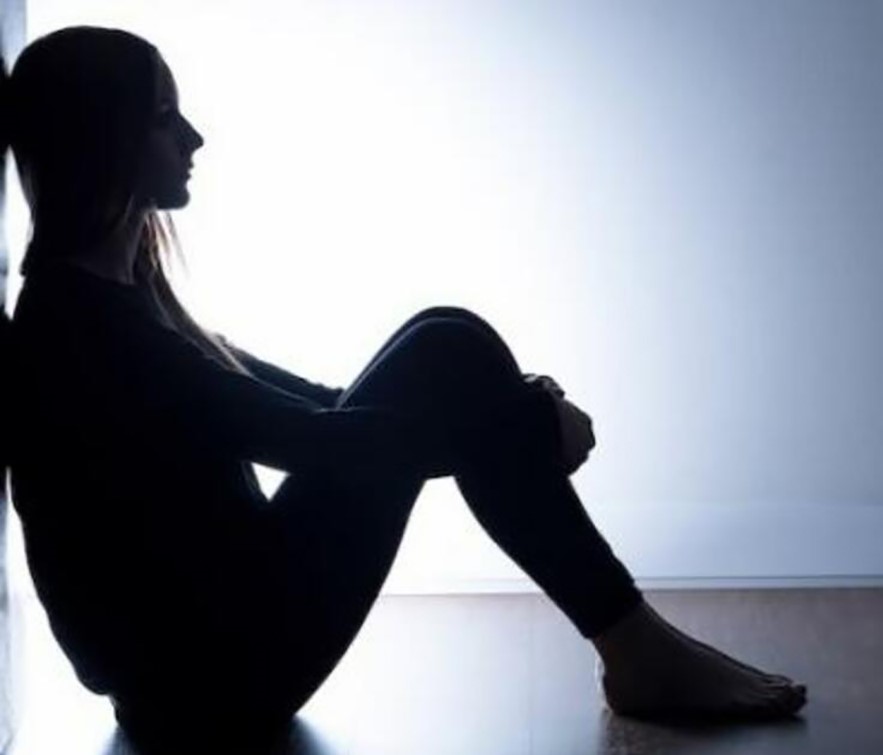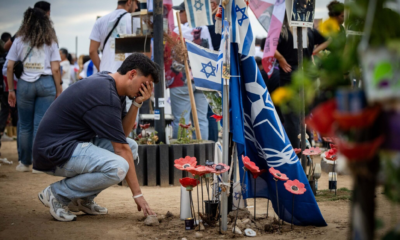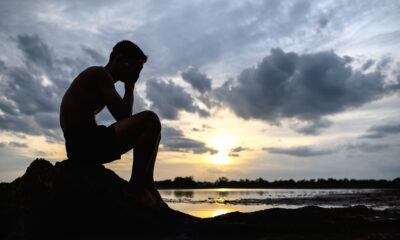
Featured Item

Mental illness – ‘a pandemic of its own’
“My brother was like a boxer, he took many knocks and would always get up. In the end, there were just too many, and he gave up the fight.”
These are the words of a grieving sister whose brother, an observant young man in the community, took his life two weeks ago.
Her name is being withheld to protect his identity.
“He took one punch too many, and the ongoing challenges got the better of him. Now, our family is left behind to grieve and mourn this tragic loss,” she said.
The untimely passing of this father of two has shone the spotlight on suicide and mental health in the community at a time when the suicide rate has risen dramatically in the country in the shadow of the pandemic.
“I know of four people within the community who have taken their lives in the past four weeks,” said Rabbi Eitan Ash. “This is a pandemic of its own, and I’m petrified that this is just the start.”
“I’m not a doctor or a virologist, but I spend a lot of time speaking to people in the community, and people of all ages are struggling emotionally and psychologically,” he said.
He said the community needed to address mental health as a matter of urgency “from the leadership all the way down” and make sure people knew that there was plenty of help at hand and nothing to be ashamed of.
“People aren’t seeing the light at the end of the tunnel, which is making them feel more desperate, leading them down a dark spiral of hopelessness and causing them to make terrible decisions,” he said.
Ash said people needed to see this side of COVID-19 – that depression is a disease, an illness that needs to be treated just like any other and above all, destigmatised.
“People are caught up in the medical side of COVID-19, but we need to pay attention to the psychological and emotional side as well. The psychological damage caused by quarantine, lockdown, and isolation is huge.
“Single people in the 25 to 40 age group believe there is something wrong with them when actually they just haven’t had a chance to jol and meet people,” he said.
It’s vital that the community embrace those suffering from depression, and give them a sense of belonging.
“We need to create a community brand that says no matter who you are, you are totally accepted, and we will help you no matter what your challenges are,” Ash said.
“My beloved son was driven to the point where he felt he had no way out. Something in him snapped. He had so much to give, and this is what makes it so tragic,” said the bereaved mother.
Reports this week indicate that Gauteng recorded 1 325 cases of death by suicide since April 2020, an increase of about 90% from the 695 cases reported during the 2019/20 financial year. A large portion of these include young people between the ages of 30 and 39.
According to Faith Mazibuko, the MEC for community safety, contributing factors include depression, anxiety, loss of income during the pandemic, financial difficulty, death of family members, and domestic violence.
Though the suicide numbers aren’t clear in the Jewish community, there has been a definite rise in those affected by anxiety and depression, say community-based social workers and experts in the field.
“The Chevrah Kadisha has 26 dedicated social workers dealing with hundreds of mental-health cases every month,” said Saul Tomson, the chief executive of the Chev this week.
“We are keenly aware of this mental-health crisis in the community. It’s staggering. Though suicide numbers haven’t risen dramatically during the pandemic, depression and anxiety has.”
Dr Sheri Hanson, mental-health co-ordinator at Hatzolah, said this time of year is always difficult for those going through hard times.
“It’s always tricky and coupled with COVID-19 and the uncertainty of the fourth wave, it can seem relentless,” she said.
“We’re dealing with people across the board. Every age is deeply affected by anxiety and depression which is a phenomenon that has come off COVID-19. The elderly are facing challenges of isolation and loneliness, middle-aged people have lost jobs and income, and the youth has lost out socially.
“There’s a fine line between acknowledging your feelings and not being consumed and overwhelmed by them,” she said, pointing out that it’s important to engender a sense of hope, not judging, and to make sure that people know there’s lots of help within the community.
“We need people to know that all they have to do is reach out and help is available,” she said.
In September, the South African Depression and Anxiety Group reported that there were 23 known cases of suicide in South Africa every day, and for every person that committed suicide, 10 had attempted it. Before COVID-19, the organisation fielded 600 calls a day. As of September 2021, that number had risen to 2 200 calls a day – an increase of nearly 40%. Ongoing isolation, uncertainty, economic strain, bereavement, and loss have resulted in heightened anxiety across most ages including school-going children.
Ash said COVID-19 created a total disconnect. “People live their lives in a bubble. There has been little socialising and hardly any functions. The lonely feel lonelier, and people who would ordinarily reach out don’t even know when there’s a problem.”
For this reason, he and several rabbis in the community are encouraging people to reach out.
“Call a friend, reach out to your wider circle, make that call. That WhatsApp can literally save someone’s life.”











Anonymous
December 8, 2021 at 9:03 pm
Other thing to consider is the overwhelming pressure you receive from your family and friends to get vaccinated
People has the right to be anxious without being a conspiracy theorist or whatever people wants to call the ones who are not comfortable taking it
The mandatory is really scary and no-one seems to understand
Prefer to stay anonymous